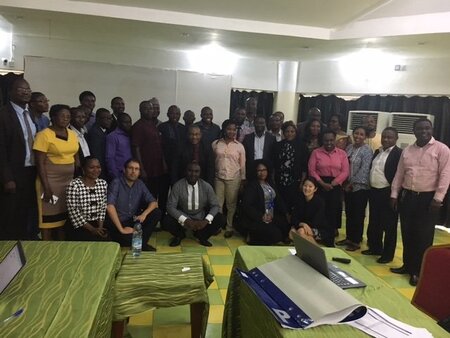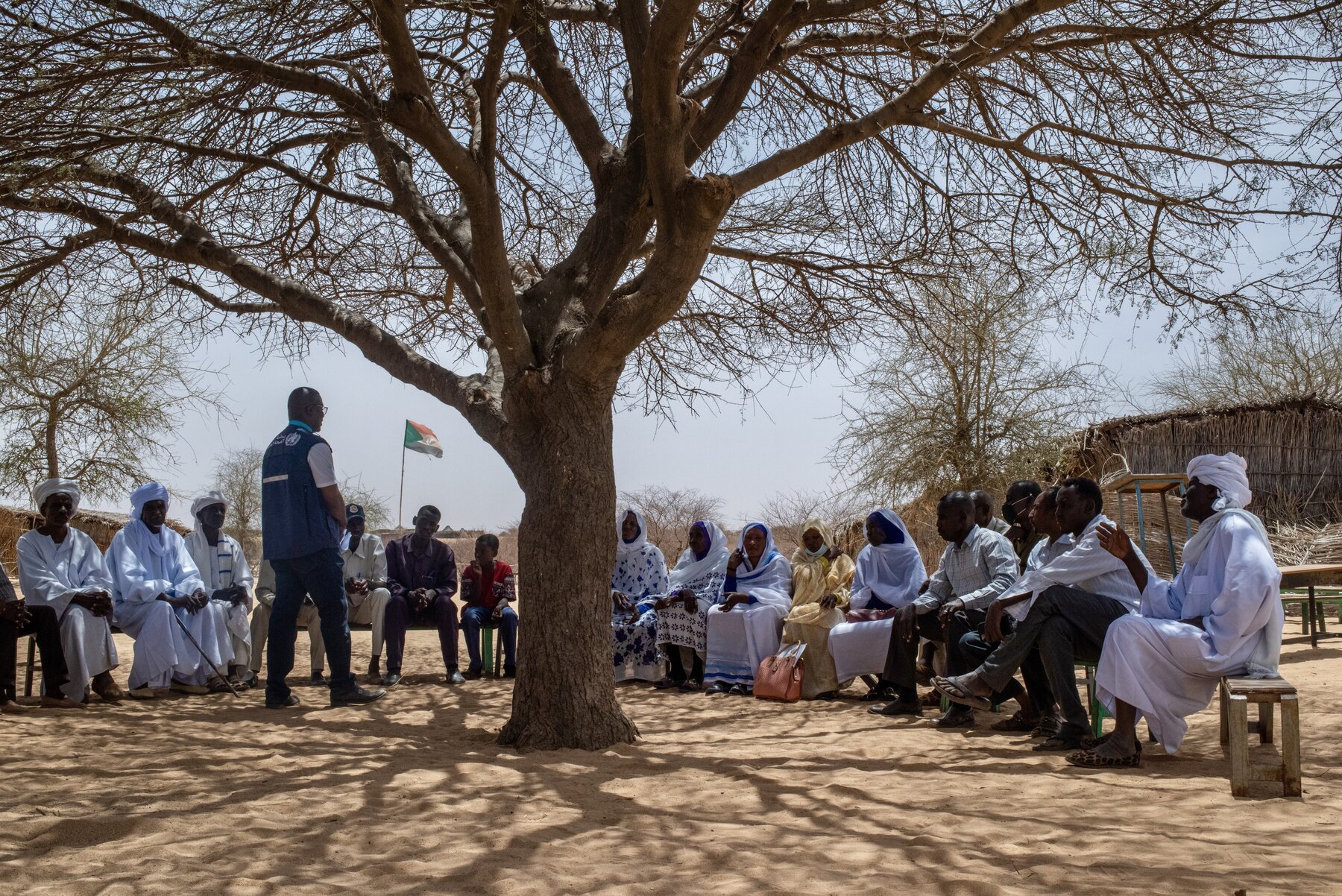Nigeria to Track Health Sector Performance With Coordinated Partner Support on Health Data
23 November 2016

In 2015, Nigeria had the fourth-highest maternal mortality ratio in the world, according to the World Health Organization. The alarmingly high death rate -- 814 per 100,000 live births -- prompted Nigeria’s Federal Ministry of Health to make the reduction of maternal morbidity and mortality its top priority in its new National Health Policy published in September 2016. Close behind is a goal to reduce the burden of infectious disease: Nigeria has 24 percent of the world’s cases of malaria, the most in the world, and the second-largest HIV and tuberculosis burdens.
To implement the new health policy, an updated National Strategic Health Development Plan is now being developed. But such a plan is not enough. A performance monitoring and evaluation (M&E) framework must also be in place to track whether the plan’s objectives are being met or not. Tracking that performance requires robust capacity for collecting accurate data and analyzing the information to inform policy measures and to hold decision-makers accountable.
In Nigeria that capacity has been weak, giving rise to multiple data systems driven by donors and other development partners focused on narrow disease areas such a HIV, malaria and tuberculosis. As a result, the country’s health information system has become fragmented, uncoordinated and compromised, according to the health ministry.[1]
“We are all working toward the same goals and objectives – to strengthen M&E of the overall health sector,” said Dr Akin Oyemakinde, director of the health ministry’s department of health planning, research and statistics. “So we need to collaborate better with our States, partners, and other stakeholders.”
That political will prompted the health ministry, with support from WHO, to invite health development partners and other departments of the ministry to a two-day workshop in Abuja last month for a joint “situation analysis” of its M&E capacity to identify gaps that can be collectively addressed by partners in a coordinated way. In addition to representatives from 10 departments at the ministry of health, participants included those from CDC, USAID, PEPFAR, MEASURE Evaluation, UNICEF, UNAIDS, National Malaria Elimination Programme, National Agency for Control of AIDS (NACA), National Bureau of Statistics, Non-Communicable Diseases Commission, National Population Commission, National Primary Health Care Development Agency and others. Participants at the workshop were divided into four groups to assess and score the key components of a functional M&E system.
On day two of the workshop, the four groups re-convened to identify priority actions to address M&E areas that require strengthening and align with national health priorities. These priority actions now form the basis of a Roadmap, which will require endorsement and support from disease programmes, partners and other stakeholders.
With the “enormous amount of work” accomplished during the situation analysis workshop, Dr Oyemakinde said the drafting of the new National Strategic Health Development Plan can now be fast-tracked so it can be presented at the National Council on Health in late November. A national stakeholders workshop will then follow in late January.
Following Kenya and Malawi, Nigeria is thus a potential pathfinder country for the Health Data Collaborative, which brings together global health partners in adopting a more harmonized approach, aligned with county priorities, to strengthening national health information systems, improving the quality of health data and tracking progress toward the health-related Sustainable Development Goals.
For more information on the Health Data Collaborative, please visit www.healthdatacollaborative.org.
[1] National Health Information System Strategic Plan 2014-2018, National Health Policy 2016.

